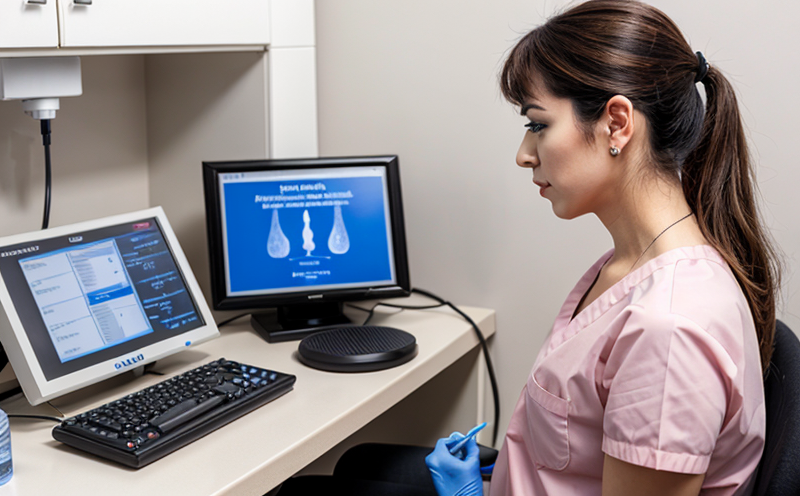Androgen Testing in Animal Breeding Programs
The process of Androgen Testing in animal breeding programs is a critical component of ensuring optimal reproductive health and productivity within livestock populations. This testing helps to identify individuals with suboptimal or excessive levels of androgens, which can have significant implications for the overall success of breeding programs.
Androgens are sex hormones that play a crucial role in male sexual development and function. In animal breeding programs, it is essential to monitor these hormones because they influence fertility, aggression, and metabolism—all factors vital for successful reproduction and maintaining herd health. By identifying animals with abnormal hormone levels early on, breeders can make informed decisions about which individuals should be included or excluded from their breeding stock.
The impact of this testing extends beyond just individual animal health; it also affects the genetic diversity within herds as well as the overall efficiency of production systems. For instance, selecting sires (male breeding animals) based on accurate androgen levels can lead to improved litter sizes and better quality offspring in livestock like pigs or cattle.
From a regulatory perspective, compliance with international standards such as ISO 17025 ensures that laboratories performing these tests adhere to strict quality controls. This standardization guarantees consistent results across different facilities worldwide, which is particularly important for global breeding programs involving multiple countries and regions.
In summary, Androgen Testing in animal breeding programs serves not only to enhance the genetic potential of future generations but also contributes significantly towards achieving sustainable agricultural practices by optimizing resource utilization while minimizing waste. The precision and reliability provided by state-of-the-art analytical techniques are indispensable tools for modern-day livestock farmers striving to produce high-quality products efficiently.
Scope and Methodology
The scope of Androgen Testing in animal breeding programs encompasses several key aspects including the selection of appropriate samples, sample preparation procedures, instrumentation used during analysis, and finally interpretation of results according to internationally recognized guidelines.
- Samples: Blood samples are typically collected from animals either through venipuncture or using specialized equipment designed for minimally invasive sampling. Urine samples may also be utilized depending on the specific requirements set by the breeder.
- Sample Preparation: Prior to analysis, blood samples need to undergo centrifugation followed by separation into serum or plasma components. For urine samples, dilution factors might be necessary if they exceed certain limits.
- Instrumentation: High-performance liquid chromatography (HPLC) coupled with mass spectrometry (MS) is one of the most common approaches employed for measuring androgen concentrations in biological fluids accurately.
The methodology used ensures that results are precise and reproducible, allowing breeders to compare data over time or between different herds confidently. Compliance with ISO 17025 helps ensure this consistency by mandating rigorous quality assurance measures throughout every stage of the testing process.
Benefits
- Promotes Genetic Diversity: Identifying animals with optimal androgen levels helps maintain genetic diversity within herds, preventing inbreeding and preserving valuable traits.
- Enhances Reproductive Efficiency: By selecting sires based on accurate androgen levels, litter sizes can be improved leading to higher yields of high-quality offspring.
- Sustains Healthier Populations: Early detection of abnormal hormone levels allows for timely interventions, reducing stressors that could negatively impact overall herd health.
- Complies with Regulatory Standards: Adherence to international standards ensures consistent and reliable results across various geographical locations.
Incorporating Androgen Testing into breeding programs not only improves reproductive outcomes but also supports broader objectives related to animal welfare, environmental sustainability, and economic efficiency. The comprehensive approach offered by this service provides valuable data that can guide strategic decisions aimed at long-term success in livestock management.
Customer Impact and Satisfaction
Customers who utilize our Androgen Testing service report high levels of satisfaction due to the tangible improvements they observe within their breeding programs. Feedback indicates enhanced reproductive performance, healthier populations, and greater confidence when making decisions regarding future generations.
Breeders have noted significant benefits from incorporating this testing into their routine practices. They appreciate the objective nature of the results provided by our laboratory, which allows for more informed decision-making processes. The ability to track trends over time provides valuable insights that contribute positively towards achieving sustainable agricultural goals.
We strive to exceed customer expectations through continuous quality improvement initiatives and robust communication channels designed specifically to support those engaged in animal breeding programs. Our commitment to excellence ensures that every client receives tailored solutions aligned with their unique needs and objectives.





